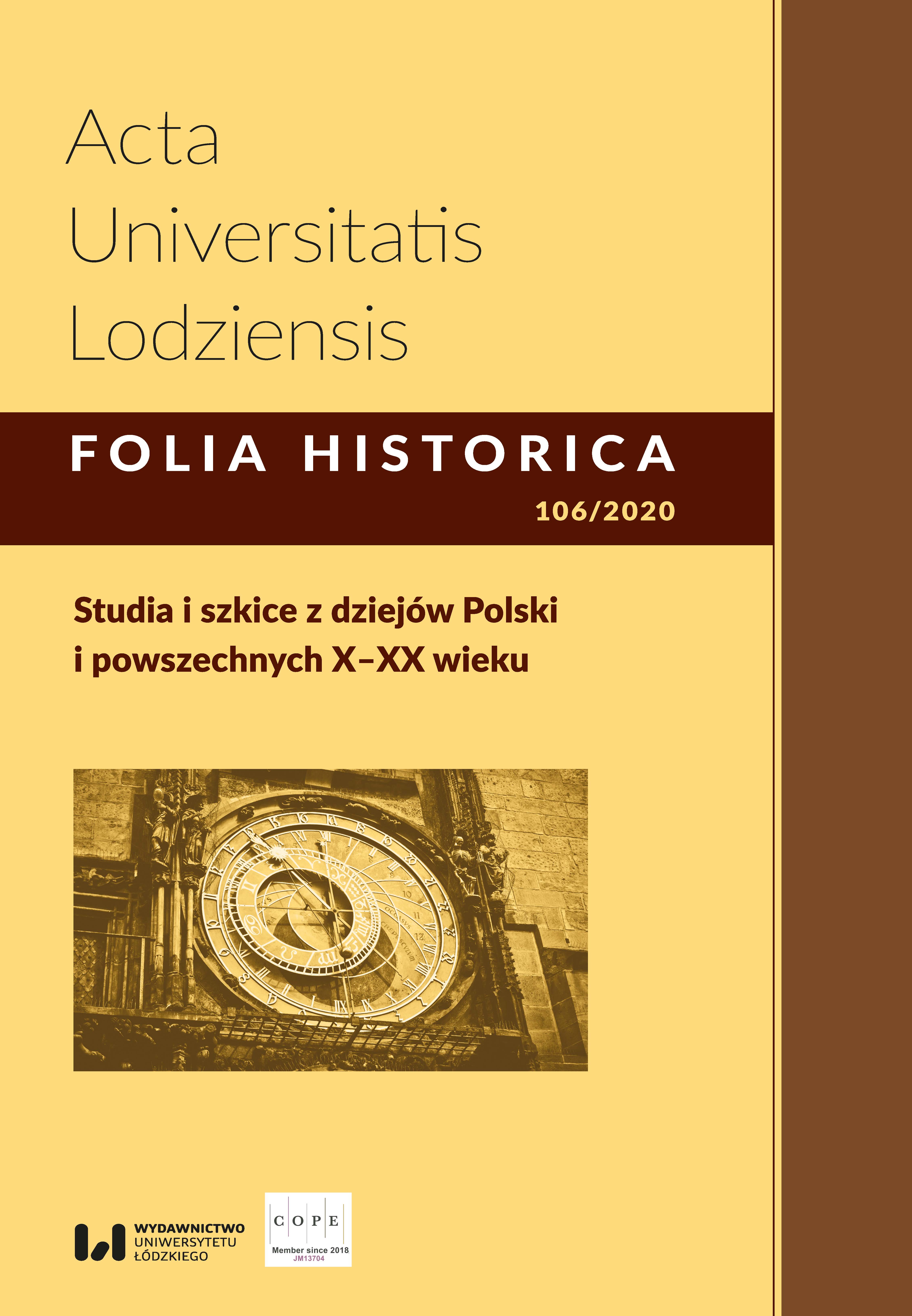Dyplomacja PRL wobec kryzysu karaibskiego w 1962 roku
Diplomacy of the Polish People’s Republic towards Caribbean Crisis in 1962
Author(s): Konrad KiećSubject(s): Diplomatic history, Recent History (1900 till today)
Published by: Wydawnictwo Uniwersytetu Łódzkiego
Keywords: Polish foreign policy; 20th century; Caribbean Crisis
Summary/Abstract: The Ministry of Foreign Affairs and the head of Polish diplomacy at that time, Adam Rapacki, considered the Caribbean Crisis to be extremely dangerous for Poland. It was due to the fact that Warsaw maintained good economic relations with Washington. Since establishing diplomatic relations with Havana, relations between the Polish People’s Republic (PPR) and Cuba had developed slowly. From 1960, PPR was forced to help Cuba, while not drawing any benefits from exchange trade. Larger commitment to improve relations with Castro’s regimes was forced by Moscow. Poland was the last member of Eastern Bloc to establish relations with Havana. The United States of America reacted to these events in an extremely nervous manner. The administration of President John Kennedy threatened to cancel economic cessions granted to Poland. In this context, Adam Rapacki’s visit to Havana in June 1961 seemed provocative from the USA point of view. British diplomacy, however, interpreted the Polish minister’s speech at the University of Havana differently and maintained that Rapacki was careful not to offend the United States of America. Moreover, the Foreign Office believed that he was forced to make this foreign visit. When the Cuban Missile Crisis began, the Polish Ministry of Foreign Affairs tried to avoid any actions that could be seen as provocative by U.S. Navy forces, conducting a naval blockade of the island. The USSR did not inform its allies about the plan of placing the missiles on Cuba, which testified to the lack of sovereignty of the PPR and other Eastern Bloc states. The Polish Ministry of Foreign Affairs did not make any active moves regarding the crisis, but still tried to obtain the most reliable information on the events. The most informed person was PPR’s ambassador in Washington, while those in Havana and Moscow had incomplete data. In addition, after the biggest threat of the outbreak of thermonuclear war has passed, it was the PPR that provided information about Fidel Castro’s critique of Moscow’s position towards the crisis.
Journal: Acta Universitatis Lodziensis. Folia Historica
- Issue Year: 2020
- Issue No: 106
- Page Range: 157-189
- Page Count: 33
- Language: Polish

